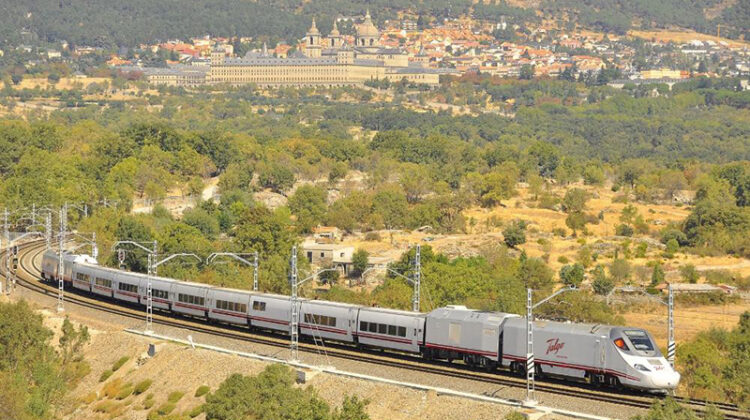
A consortium of ten Spanish companies has announced a plan to design, build and install the world’s first hydrogen-fuel-cell-powered high-speed train.
Under the Hympulso project, which has received a €6.5million grant, the companies will develop a set of technologies that can be applied to the Talgo 250 ‘all-terrain’ train, making it possible to electrify the rail network with energy generated entirely from renewable sources, even on lines without overhead power lines.
The Hympulso project aims to build an entire renewable hydrogen value chain in the railway system, from production to consumption. It will develop a prototype of a hybrid bimodal passenger train for passengers that will be able to run on both conventional and high-speed networks, capable of using overhead power lines when available or hydrogen and batteries on lines that aren’t electrified.
Train manufacturer Talgo, which is leading the project, plans to develop, manufacture and test dual-hybrid hydrogen battery traction on a Talgo 250 train, intended for long-distance operations on mixed sections: partially electrified and partially non-electrified.
The Talgo 250 trains feature two technical end cars (CET), which are currently used to generate electricity from diesel to power the traction units on sections without overhead power. Under the Hympulso project, one of these diesel CETs will be replaced by one equipped with hyrogen fuel cells and batteries.
Consortium member Ingeteam will design, manufacture and test reversible high-power converters, capable of charging the batteries from the overhead lines. Repsol and Golendus will be responsible for developing two hydrogen refuelling facilities. Repsol will deploy a mobile facility, while Golendus’s hydrogen plant will be a static production and supply facility. For the hydrogen supply facilities and the railway infrastructure, Sener will carry out an overall risk analysis and a simulation of the operation of the services. In both cases, a logistics control platform will be developed to monitor the use of hydrogen in the network.
Finally, Alava-based Optimus3D will use additive manufacturing and other processes to create more efficient and durable new materials to be used in hydrogen applications.
Adif, a state-owned enterprise under the responsibility of the Spanish Ministry of Transport, Mobility and the Urban Agenda, will act as an observer. It hopes to develop an understanding of how hydrogen technology can fit into the existing railway infrastructure and will develop the safety requirements associated with the design of refuelling facilities.


